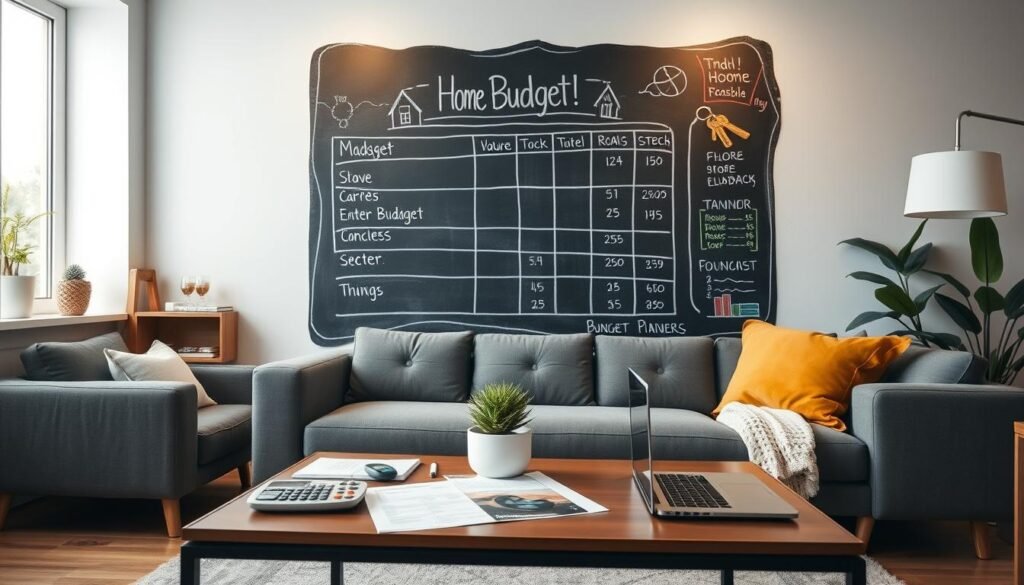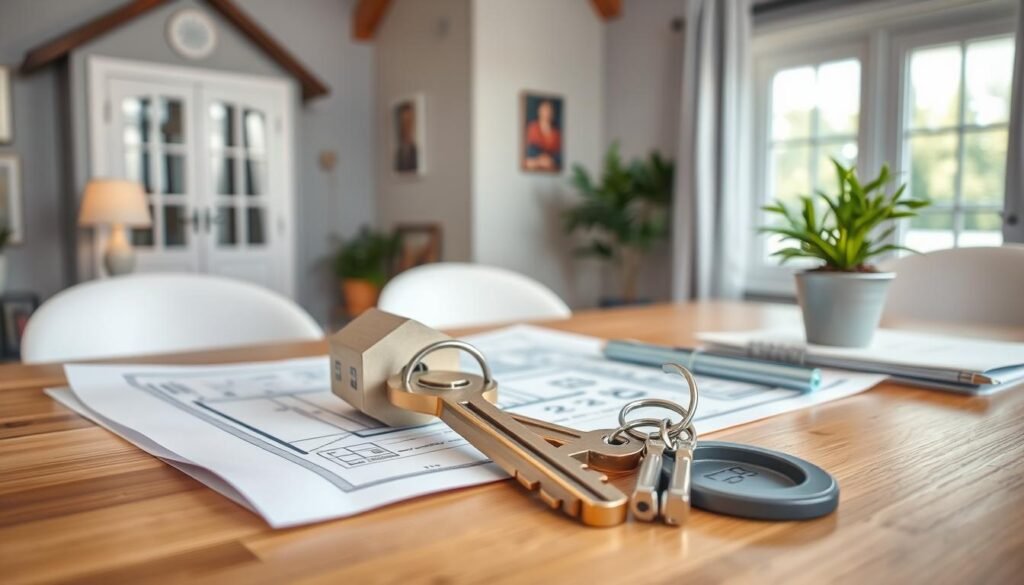This post may contain affiliate links, which means I may earn a commission if you purchase through these links at no extra cost to you
Buying your first home is a big step. It’s not just about spending money; it’s a key moment in life. Many see it as the start of a new chapter that brings stability and a feeling of belonging. However, the excitement comes with its challenges and potential errors. As you begin to look into real estate, dream big but also make smart choices. These choices should bring you happiness and financial stability in the long run.
Did you know that you don’t need a 20 percent down payment to buy a home? And that a mortgage can be approved with a credit score in the 500 range? Misunderstandings like these lead to expensive mistakes for first-time homebuyers.
I am going to give you some tips for buying your first home. I will discuss high interest rates and the benefit of getting pre-approved for a mortgage. It’s important to set a budget that keeps you financially healthy in the long term. Also, consider new construction to avoid competitive bidding. By the end, you’ll know how to sidestep common errors and make choices with confidence.
Table of Contents
ToggleTrying to Time the Real Estate Market
Many people looking to Buy a Home in 2025 think about waiting for the right time. It’s true, changes in the Real Estate Market and Housing Trends matter a lot in this decision. But trying to time the market comes with big risks and unknowns. Let’s look into why that is.

The Risks of Market Timing
When you try to guess real estate market changes, you might miss great homes. Things like economic reports, political events, and new rules can suddenly change the market. For instance, a report showed a 5% rise in home prices in a year, highlighting the ups and downs in prices.
Expert Advice on Market Timing
Do not to obsess over the changing housing market. Instead, look for a home that meets your needs and budget. With mortgage rates changing – reaching 7.79% in October 2023 and staying around 6.54% since mid-August – no time is perfect.
Focus on what you really need and your long-term money goals. This strategy prevents the traps of market timing and helps you find the right home.
Overspending Beyond Your Budget
Spending too much can really hurt your finances. It’s key to know what you can afford and stay within that. Look at what you can handle each month. Please avoid getting tempted by homes that are too pricey. Keeping to your home buying budget helps you dodge financial trouble later.

The Financial Strain of Overextending
Key Considerations for Setting Budget Limits
Before you start looking for a house, learn about mortgage affordability. Planning for a home isn’t just about the sale price. You should also think about closing costs, which are 2% to 6% of the buying price.
Being patient is important when buying a home. It usually takes 30 to 45 days to buy a house. Taking your time helps make sure you don’t rush your decision. Having a good financial plan makes buying a home less stressful.
Staying within your budget is essential for a stable financial future. Get advice from professionals and do your homework to avoid overspending. Being proactive helps lessen the chance of financial worries later on.
Ignoring Potential Hurdles in the Home Buying Process
Many first-timers don’t see the potential hurdles in the home buying process. It’s crucial to know these steps well. Start by learning about your credit scores. A good score makes it easier to get a better mortgage deal.

Getting mortgage approvals is another key step. If you’re pre-approved, you’ll stand out to sellers. This is especially true in busy markets. Remember, closing on a home usually takes at least 30 days.
Legal issues are often missed by buyers. Issues can come up with zoning laws, inspection rules, and development plans around the property. You should check all these before you finalize the purchase. Doing so helps you avoid unwanted surprises and ensures the home is a good fit for your investment.
Work with a Real Estate Broker up front. We know the market well and will give advice on what a home’s fair price should be.
Missing Out on Assistance Programs
Many first-time buyers do not take advantage of financial assistance programs. These can be crucial in helping achieve homeownership. Not using these programs can lead to affordable homeownership or financial trouble.
Types of Assistance Programs Available
There’s a range of Home Buyer Assistance Programs out there to help with money issues. One popular form is down payment funds, which make initial costs more manageable. There are also loans backed by the government, like FHA, VA, and USDA loans. They offer low down payments, good interest rates, and sometimes no need for private mortgage insurance. These programs make getting a mortgage easier and fit different budgets.
How to Qualify and Apply for Assistance
Knowing how to get housing grants and other help can greatly aid your home-buying journey. Be aware, many programs have income limits that could exclude higher earners. For families, the criteria may be more lax, boosting your odds. It’s smart to apply before starting your home search to avoid delays and appear committed to sellers.
Moreover, it’s wise to talk to various lenders to ensure you’re getting the best deal. Sticking with one could cost you a lot in the long run. Research thoroughly, compare offers from at least three lenders, and get to know each program well. This approach could save you significantly.



